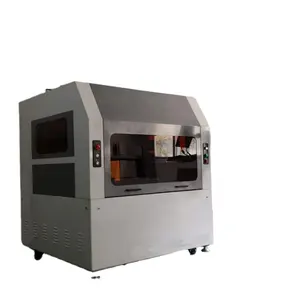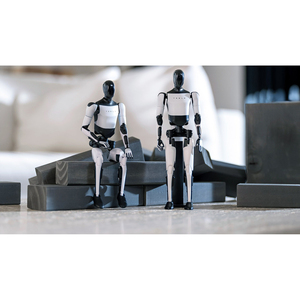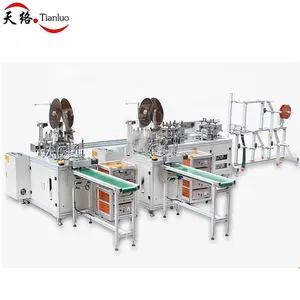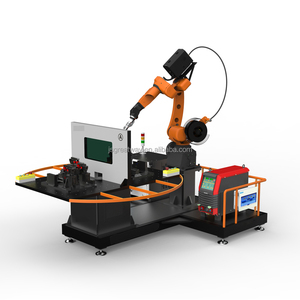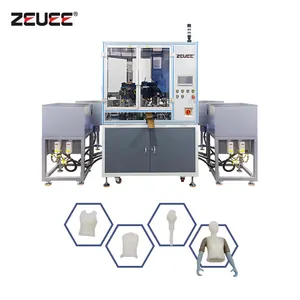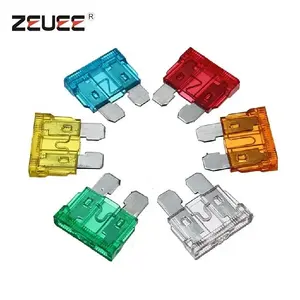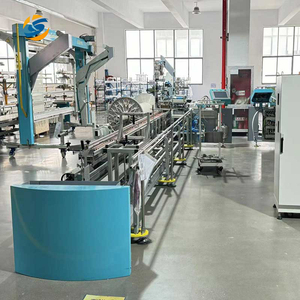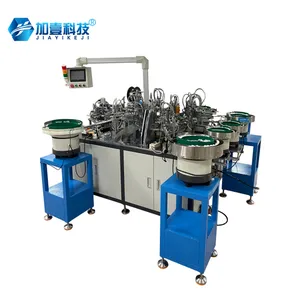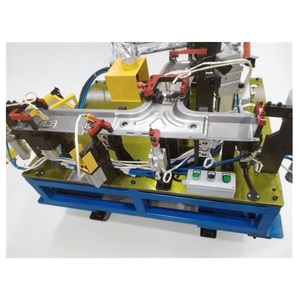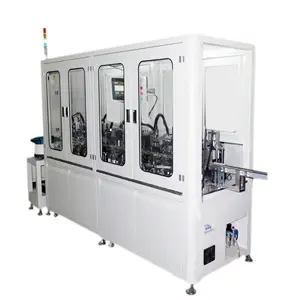Tesla Factory Automation














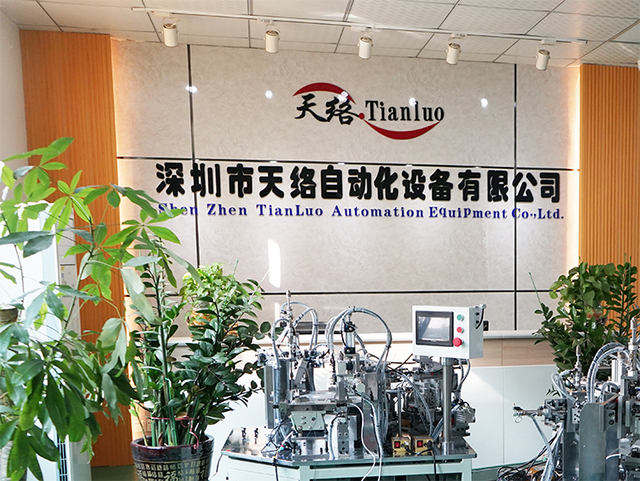



 CN
CN





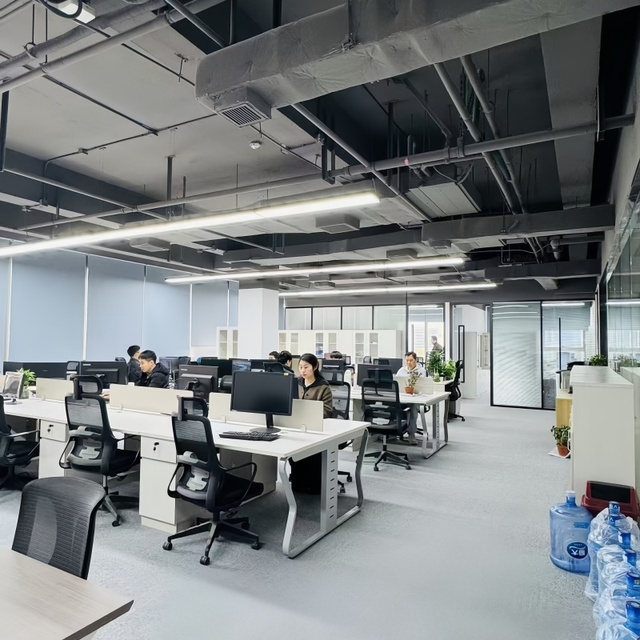



About tesla factory automation
Where to Find Tesla Factory Automation Suppliers?
China remains a central hub for industrial automation equipment manufacturing, with key suppliers of Tesla-related factory systems concentrated in Guangdong and Shenzhen. These regions host advanced industrial ecosystems specializing in battery assembly lines, robotic integration, and electric vehicle (EV) component automation. Shenzhen leads in electronics production machinery and smart control systems, supported by dense networks of R&D firms and component manufacturers. Guangdong’s Dongguan and Guangzhou zones focus on heavy-duty automation, including ultrasonic welding, wire bonding, and powertrain assembly systems.
The clustering enables vertical integration across design, machining, and system testing, reducing lead times for complex automation setups. Suppliers benefit from localized access to CNC fabrication, servo motor production, and lithium-ion battery handling technologies. Buyers can expect standard delivery windows of 30–60 days for full automation cells, with cost advantages of 25–40% over equivalent Western-built systems due to lower labor and overhead expenses. Customization flexibility is high, particularly for EV battery pack assembly and contactless wire bonding applications.
How to Choose Tesla Factory Automation Suppliers?
Selecting reliable partners requires rigorous evaluation across technical, operational, and transactional dimensions:
Technical Expertise & Equipment Specialization
Prioritize suppliers with documented experience in battery cell handling, ultrasonic aluminum/copper wire bonding, or automated powertrain assembly. Verify compatibility with Tesla’s 21700 and 18650 battery formats where applicable. Demand proof of precision engineering—such as ±0.02mm tolerance in robotic arm positioning—and request validation of cycle time performance (e.g., 3–5 seconds per weld point).
Production Capacity Verification
Assess infrastructure maturity through objective metrics:
- Minimum facility size of 2,000m² for integrated system assembly
- In-house capabilities in CNC machining, PLC programming, and ultrasonic transducer calibration
- Dedicated teams for automation line simulation and FAT (Factory Acceptance Testing)
Cross-reference online revenue data and reorder rates to gauge market confidence. On-time delivery rates above 95% indicate robust production planning.
Quality Assurance & Transaction Security
Confirm adherence to international quality frameworks such as ISO 9001. While not always listed, CE marking should be available upon request for EU-bound machinery. Utilize secure payment mechanisms like escrow services until site commissioning is complete. Request sample testing protocols—particularly for high-current busbar welding integrity—and validate non-destructive testing procedures (e.g., ultrasonic bond inspection).
What Are the Best Tesla Factory Automation Suppliers?
| Company Name | Location | Main Products | Online Revenue | On-Time Delivery | Avg. Response | Reorder Rate | Notable Product Range |
|---|---|---|---|---|---|---|---|
| Shenzhen Aitop Intelligent Equipment Co., Ltd. | Shenzhen, CN | Battery Testers (819), Assembly Lines | US $150,000+ | 100% | ≤3h | <15% | Tesla EV Battery Pack Automation Systems ($39K–$50K/set) |
| Guangdong Songke Leading Intelligent Equipment Co., Ltd. | Guangdong, CN | Other Machinery (151), Battery Testers (88) | – | 100% | ≤2h | – | Automatic Thick Wire Bonders ($490K), Ultrasonic Heavy-Wire Bonding Machines ($45K) |
| Dongguan Tes Machinery Co., Ltd. | Dongguan, CN | Customization: color, material, logo | US $160,000+ | 100% | ≤2h | 33% | 6-Axis Robotic Arms ($3,699), Laser Welding Robots ($3,350) |
| Shenzhen Xingjialin Electronic Technology Co., Ltd. | Shenzhen, CN | Other Body Parts (244), Door Systems | US $80,000+ | 98% | ≤6h | 44% | Automated Car Door & Tailgate Systems ($240–$489/set) |
| Guangzhou Beisicheng Trading Co., Ltd. | Guangzhou, CN | Suspension & Chassis Components | US $90,000+ | 90% | ≤3h | 60% | Low-cost Automation Parts ($4–$18.50/piece, MOQ 2–4 units) |
Performance Analysis
Shenzhen Aitop and Guangdong Songke represent high-end system integrators, offering turnkey battery automation lines with full process validation. Their 100% on-time delivery records reflect strong project management, though low reorder rates suggest niche client bases. Dongguan Tes stands out for mid-range robotics, combining affordability with customization options and a balanced 33% reorder rate. Shenzhen Xingjialin focuses on peripheral automation (doors, handles), achieving high customer retention (44%) despite longer response times. Guangzhou Beisicheng offers component-level solutions at aggressive pricing but carries higher risk due to 90% delivery reliability and fragmented product alignment. For core production line procurement, prioritize suppliers with documented experience in ultrasonic metal welding and battery module assembly.
FAQs
How to verify Tesla factory automation supplier credibility?
Validate technical claims through video audits of live production runs. Request client references from automotive or EV battery clients. Check consistency between listed product specifications and actual machine capabilities, particularly regarding automation speed and error rates.
What is the typical MOQ and pricing range?
Minimum Order Quantities start at 1 set for complete systems, with prices ranging from $3,000 for robotic arms to $490,000 for fully automated thick-wire bonding lines. Component-level automation parts may require only 2–4 pieces per order.
Are customization options available?
Yes, leading suppliers support modifications in mechanical footprint, control interface (PLC/HMI), voltage requirements, and integration with existing MES/SCADA systems. Dongguan Tes and Shenzhen Aitop offer branding and labeling customization for OEM deployments.
What are standard lead times?
Standard automation systems ship within 45–60 days after order confirmation. Simpler components (e.g., door actuators) may dispatch within 15–20 days. Complex custom builds involving multi-axis robotic integration require 70–90 days including FAT.
Do suppliers provide installation and training?
Most suppliers offer remote commissioning support. On-site installation and operator training are typically negotiable add-ons, especially for orders exceeding $50,000. Clarify service costs and travel terms before contract finalization.
















